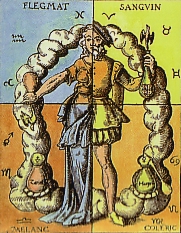 IN past mythology there were many beasts that featured in certain tales: reptilian of the watery element; those with the breath of flame-throwers, of the fiery elements; creatures endowed with feather and wingspan of the air, and heavyset hardened-skull, cave and darkness dwellers of the earth.
IN past mythology there were many beasts that featured in certain tales: reptilian of the watery element; those with the breath of flame-throwers, of the fiery elements; creatures endowed with feather and wingspan of the air, and heavyset hardened-skull, cave and darkness dwellers of the earth.
Also corresponding to such mythology were the angelic doctrines of the elemental faerie host: those that inhabit and dwell amongst their elements with both higher and lower faculties, from sprite, sylph, nymph, elf, salamander, gnome, dwarf and so forth. Each elemental being had an elemental beast or group of beast-like brothers and powers from the garden of the world, being like representation of their particular element from which they originally sprung.
Alike to parents, the higher realms of the Angelic Host would look on, with visitations and guardianship over their correspondingly significant concerns, moving in either the air, water or fire, but not the earthly realms.
Man in his relation to the Zodiac is placed (in loose terms today) under the influence of one particular element. And the corresponding natures of these elements hold keys to the advantages and disadvantages that might present to the personality during that period in which he comes under their influence.
However, a man may bring with him a temperament that does not fit the present one, under which influence he is currently determined by. In fact this is most often the case, as the former may well help to balance the latter, redistributing attributes and essential qualities, re-establishing a different relationship within the cosmos.
Therefore one might be choleric in temperament and come into the world demanding to be fed, but be born into the watery aspect which in time, will too, have its influence on the building and expression of the future nature and personality of that particular individual.
So it goes also with the sanguine, melancholic and phlegmatic. In regards to health there is a direct relationship between the treatment and effect on an individual, depending on both past and present elemental aspects that dominate their personality characteristics, largely because the organs are stimulated by such aspects, as too the astral body, in which both etherical forces permeate or cosmic qualities are received within. The balance of the temperament plays an essential role in the determining of such wellbeing and harmony within the whole constitution, rather than just one aspect.
The phlegmatic individual might feel compelled to seek a diet, for example, that encourages this disposition. This of itself would better be corrected by a menu which selectively did not promote the nature of the watery element but instead brought the influence of the sanguine or the choleric.
Although the sanguine might enjoy in indulgence of sugars and tea drinking, there may be benefit in the consumption of complementary foods and beverages (although try and make a true sanguine ingest lemon, bitters, salt and spice!)
However, these contrasting foods may assist with health deficiencies, although moreover, the inclinations within a particular temperament and their relation to the perception of the outer world play a far greater role in the general wellbeing of the individual.
That is not to say that one should dismiss the qualities that one is endowed with, however at the bottom of one's lower nature there is a serpent, a slug, a dragon, vulture, and so forth, to be contended with. Similarly too, a John, Luke, Matthew and Mark: representing the qualities of higher elemental persuasion.






No comments:
Post a Comment